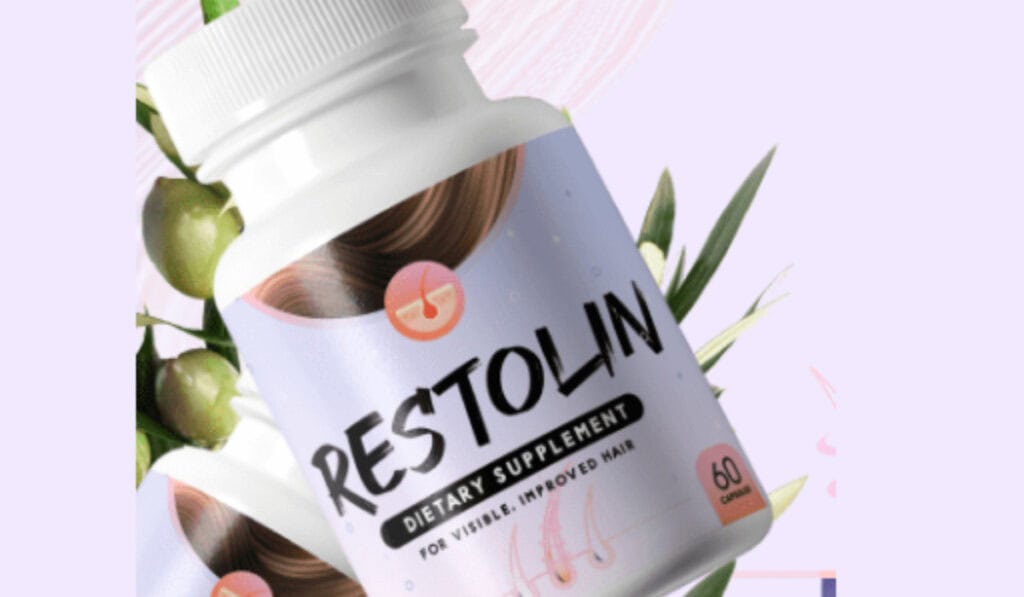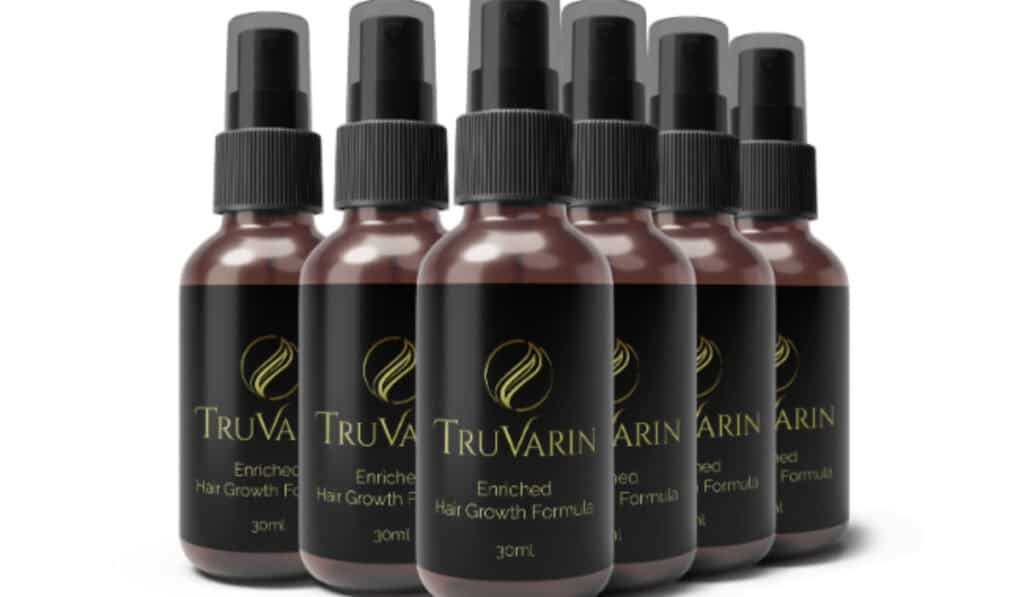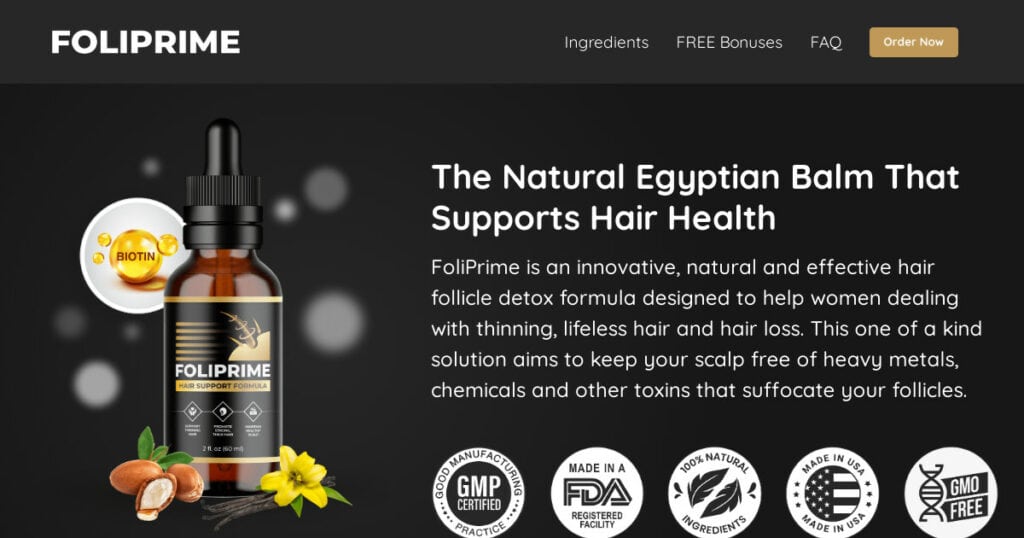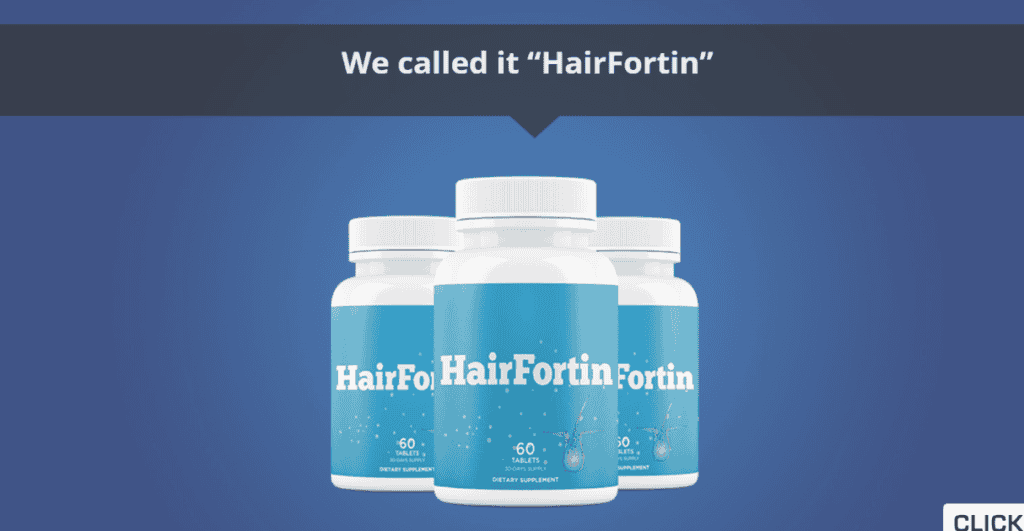What Works and What’s Just Hype
When it comes to battling hair loss, the market is flooded with countless supplements claiming to offer the golden solution. However, distinguishing between what’s genuinely effective and what’s merely riding the wave of trends can be challenging. On one side, there are trendy supplements, backed by celebrity endorsements and social media buzz. On the other, there are tested supplements, supported by scientific research and clinical trials. In this exploration, we will delve into both worlds, examining the merits and downsides of each to help you make informed decisions about your hair health.
Trendy hair loss supplements often come with appealing packaging and promise quick results with exotic ingredients. While some may offer benefits, it’s crucial to approach them with a healthy dose of skepticism. Without the backing of substantial scientific evidence, these trendy options might not deliver the promised outcomes and could even harm your health.
Conversely, tested hair loss supplements have stood the test of time and scientific scrutiny. These products typically contain ingredients with proven efficacy in supporting hair growth or reducing hair loss. By focusing on these tested options, you may find a more reliable path to improving your hair health, albeit potentially at a slower pace than some trendy supplements claim to offer.
Understanding Hair Loss and Its Causes
Hair loss can stem from various factors, including physical or emotional stress, nutritional deficiencies, hormonal imbalances, and genetics. The American Academy of Dermatology highlights the importance of understanding these underlying causes to effectively address hair loss. Key elements like thyroid hormone levels and vitamin E play significant roles in hair health, indicating that a holistic approach is often necessary for tackling this complex issue.
Can Stress Lead to Hair Loss?
Yes, physical or emotional stress can indeed trigger hair loss. Stressful events or periods can cause the hair follicles to prematurely enter the shedding phase of the growth cycle, leading to noticeable hair thinning. This type of hair loss, known as telogen effluvium, is usually temporary, and normal hair growth often resumes once the stress is managed.
The Impact of Nutrition on Hair Health
Your diet plays a crucial role in maintaining healthy hair, and certain nutrients are particularly beneficial. Pumpkin seed oil, for example, is rich in vitamins and minerals that support hair health. Incorporating foods or supplements containing pumpkin seed oil can contribute to stronger, healthier hair and may even help in reducing hair loss.
Trendy vs Tested: The Hair Loss Supplements Face-off
In the battle between trendy and tested hair loss supplements, pumpkin seed oil stands out as an ingredient featured in both categories. Its popularity has surged due to promising research, yet it also has a history of traditional use. This duality highlights the importance of looking beyond trends and focusing on the ingredient’s efficacy and safety.
The Rise of Trendy Hair-Growth Vitamins
“The market has seen a significant rise in trendy hair-growth vitamins,” says a board-certified dermatologist. Despite their popularity, many of these products lack solid scientific backing, making it crucial for consumers to critically assess the claims made by these supplements. It’s essential to look for products that not only have the endorsement of healthcare professionals but also provide clear evidence of their effectiveness.
Moon Juice SuperHair: A Closer Look
Moon Juice SuperHair has captured the attention of those seeking to boost their hair health, promising visible results through a blend of natural ingredients. Board-certified dermatologist Dr. Jane Doe remarks, “While Moon Juice SuperHair presents an impressive ingredient list, consumers should remain cautious and look for concrete evidence supporting its efficacy.” As with any supplement, it’s important to conduct thorough research and possibly consult a healthcare provider before incorporating it into your routine.
The Buzz Around Biotin and Its Effectiveness
Biotin, a B-vitamin, has long been associated with hair health, leading many to incorporate it into their daily routine. However, the consensus among experts is that more research is needed to definitively confirm its effectiveness in promoting hair growth for the general population. While taking biotin supplements may benefit those with a diagnosed deficiency, it’s not a guaranteed solution for everyone experiencing hair loss.
Time-Tested Supplements and Their Credibility
Compared to their trendy counterparts, time-tested hair loss supplements have established a reputation for effectiveness through scientific research and years of successful use. These supplements often contain ingredients with a proven track record of supporting hair health, offering a more reliable option for those looking to address hair loss with evidence-based solutions.
Viviscal Hair Growth Supplements: Why They Stand Out
Viviscal hair growth supplements have garnered attention for their clinically proven formula that supports hair growth. By taking the recommended pills daily, users can supply their hair with a marine protein complex known to bolster hair growth. This approach is rooted in a deep understanding of hair’s nutritional needs, making Viviscal a standout choice among hair-growth supplements.
Advanced Trichology: The Science Behind It
Advanced Trichology products take a scientific approach to hair loss, combining proven ingredients and methodologies to target various causes of hair thinning. This brand emphasizes the importance of addressing hair loss from multiple angles, providing a comprehensive solution for those seeking to improve their hair health through tested and reliable means.
Breaking Down the Ingredients That Promote Hair Growth
Understanding the key ingredients in hair growth supplements is essential for choosing the right product. Ingredients like pumpkin seed oil, biotin, and marine protein complexes have been shown to support hair health in different ways. By focusing on products that contain these effective ingredients, you can take a more targeted approach to enhancing your hair growth and overall health.
Multivitamin: The Foundation of Hair Health
Multivitamins play a foundational role in hair health, offering a broad spectrum of nutrients that support various aspects of hair growth. From providing essential vitamins and minerals to ensuring the body has the necessary components for healthy hair production, incorporating a multivitamin into your daily routine can help maintain optimal hair health.
The Role of Vitamin C in Regrowth Treatment
Vitamin C is not just beneficial for your immune system; it’s also crucial for hair regrowth. Its antioxidant properties help protect hair follicles from damage, while also supporting collagen production, a key protein in hair structure. Including vitamin C in your regimen, whether through diet or supplements, can significantly contribute to healthier, stronger hair.
Exploring the Benefits of Vitamin D3 for Your Locks
Vitamin D3 plays a vital role in the creation of new hair follicles, making it an essential nutrient for hair health. A deficiency in vitamin D3 can lead to hair loss, indicating its importance in maintaining a healthy scalp and hair. Ensuring adequate vitamin D3 intake, through sunlight exposure or supplements, can help promote hair growth and reduce hair loss.
The Safety and Efficacy of Hair Loss Supplements
When you’re thinking about trying hair loss supplements, it’s normal to wonder if they’re safe and if they really work. Most growth vitamins and supplements are designed to nourish your body, targeting vitamin deficiency areas that are crucial for hair health. However, like any supplement, it’s important to know what you’re putting into your body. Some ingredients in hair-growth products are backed by scientific research, suggesting they can help promote hair growth and improve vitamin D levels in individuals with deficiencies. Yet, it’s wise to proceed with caution and consider any potential side effects, especially if your body might react differently to specific compounds.
Are There Side Effects to Popular Hair Growth Vitamins?
Yes, there can be side effects to taking hair growth vitamins, but they often depend on your body’s unique chemistry and any existing conditions like a vitamin or iron deficiency. For instance, high doses of biotin supplements, despite their popularity for promoting hair growth, can sometimes cause issues for some individuals, such as skin rashes or digestive upset. It’s also important to consider how these supplements might interact with your immune system or if you have a biotin deficiency, as this could influence your experience. Always check with a healthcare provider to ensure these supplements are a good fit for you.
How Long Before You See Results From Hair-Growth Vitamins?
Patience is key when it comes to hair-growth vitamins. Your body needs time to absorb the nutrients and for the hair growth cycle to respond. Typically, you might start seeing signs of improved growth, like increased strength and thickness, within 3 to 6 months. However, this timeline can vary based on individual factors, such as the extent of vitamin deficiency or the shedding phase your hair might be in. Consistency and ensuring you’re addressing any underlying issues, like an iron deficiency, are crucial for the best results.
The Science Behind Hair Growth
Understanding how hair grows can help you see why certain supplements are beneficial. Your hair’s growth starts deep within the hair follicle, and the health of your follicle is key to producing strong, healthy hair. Supplements work by providing your body with the necessary nutrients, like B vitamins and minerals, to support hair follicle health. “Says board-certified dermatologist, the right balance of nutrients can help stimulate hair production at the source, contributing to overall strength and thickness of the hair.”
How Do Hair-Growth Vitamins Actually Work?
Hair-growth vitamins nourish your body from the inside out, aiming to correct any nutrient imbalances that might be affecting your hair. A comprehensive multivitamin can provide a wide range of nutrients, including B vitamins and antioxidants that support hair health. According to experts, these vitamins work by promoting healthier hair growth cycles and increasing the strength and thickness of hair strands. With scientific backing, these supplements can be an effective part of a broader hair care strategy, especially when combined with a healthy diet and lifestyle.
What Stimulates Hair Growth Best?
Dermatologists and trichologists agree that a multifaceted approach works best for stimulating hair growth. This includes a well-balanced diet rich in vitamins and minerals, proper scalp care, and targeted supplements like biotin for hair growth. Biotin, in particular, plays a key role in the production of hair proteins, making it a favorite among experts for supporting hair health. While no single solution fits everyone, combining these strategies can create the optimal conditions for hair growth and retention.
Supplement Formats: Pills, Liquids, and Gummies
Supplements come in various forms, including pills, liquids, and gummies, each offering its own set of advantages. Pills are a traditional and widely used option, providing precise dosages in a convenient form. Liquid supplements, on the other hand, are often faster absorbing, making them a good choice for those with digestive issues or who have trouble swallowing pills. Gummies are a tasty alternative, offering a palatable option with flavors that make them enjoyable to take daily. Choosing the right format depends on your personal preferences, lifestyle, and any specific health considerations.
The Convenience of Gummies: Hush & Hush DeeplyRooted
If you’re looking for a fun and easy way to take your hair growth supplements, gummies like Hush & Hush DeeplyRooted might be right up your alley. Not only do they taste great, but they also provide essential nutrients to promote hair growth. These gummies are particularly convenient for people who don’t like swallowing pills or have busy lifestyles and need a straightforward way to ensure they’re getting the vitamins they need for healthy hair. Plus, the novelty of gummies might even help you stick to your supplement routine more consistently.
The Efficacy of Liquid Supplements: Mary Ruth’s Morning Multivitamin
Mary Ruth’s Morning Multivitamin is a great example of how liquid supplements can be effective in supporting hair growth. Liquid forms are absorbed more easily by your body, ensuring that you get the maximum benefit from the vitamins and minerals intended to promote hair health. This makes them especially suitable for individuals with digestive issues or those who prefer a faster-acting supplement. Incorporating a liquid multivitamin into your morning routine can be a simple and efficient way to support your hair growth goals.
Medical Interventions and Their Place in Hair Regrowth
While supplements can play a significant role in improving hair health, medical interventions often provide more immediate results for those experiencing significant hair loss. Treatments like oral medications and topical solutions can target hair loss more directly, often with scientific evidence supporting their efficacy. However, it’s important to consult with a healthcare professional to understand the best approach for your specific situation, as these treatments can come with potential side effects and require a prescription.
Minoxidil: A Proven Regrowth Treatment
Minoxidil is a well-known and widely used treatment for hair regrowth. As an FDA-approved medication, it has a proven track record in helping to stimulate hair growth and prevent further hair loss. Minoxidil works by increasing blood flow to the hair follicles, encouraging the growth of new hair and prolonging the growth phase of the hair cycle. While it’s highly effective for many individuals, results can vary, and it’s important to have realistic expectations and patience when starting treatment.
The Potential of PRP Therapy in Hair Loss Management
PRP therapy, or platelet-rich plasma therapy, is emerging as a promising option for managing hair loss. This treatment involves using your own blood’s platelets to stimulate hair growth by promoting healing and increasing blood supply to the hair follicles. PRP therapy is particularly appealing because it’s a natural process that uses the body’s own resources to encourage hair regrowth. While more research is needed to fully understand its efficacy, many individuals have seen positive results from this innovative treatment.
The Role of Dermatologists in Treating Hair Loss
Dermatologists play a crucial role in diagnosing and treating hair loss. They can help identify the underlying causes, such as hormonal imbalances, nutritional deficiencies, or genetic factors. With their expertise, dermatologists can recommend the most effective treatments, ranging from topical medications to advanced therapies. Consulting with a dermatologist is a vital step in addressing hair loss, as they can provide personalized advice and treatment plans based on your specific condition and health history.
Can a Dermatologist Help With Hair Growth?
Yes, a dermatologist can significantly help with hair growth. They are experts in skin and hair health and can offer insights into why thinning is accompanied by other symptoms. By assessing your iron levels, nutritional status, and overall scalp health, a dermatologist can identify potential barriers to healthy hair growth and suggest targeted treatments or supplements. Their guidance can be invaluable in navigating the complex world of hair growth products and treatments, ensuring you choose the most effective path forward.
Medicated Scalp Treatments: When to Consider Them
If you’re dealing with an itchy scalp or other scalp conditions that are affecting hair growth, medicated scalp treatments might be the answer. These prescription treatments are formulated to address specific scalp issues, such as dermatitis or psoriasis, which can hinder hair health. A dermatologist can recommend the best scalp treatment for your condition, helping to alleviate symptoms and create a healthier environment for hair growth. Remember, treating the scalp is just as important as treating the hair itself for achieving the best results.
Navigating the World of Hair Loss Supplements
Choosing the right hair loss supplement can feel like navigating a maze, with so many options available. It’s vital to understand that not all supplements are created equal. Some promise quick fixes with trendy ingredients, while others rely on tested formulas backed by science. To make an informed decision, start by understanding your specific needs and what causes your hair loss. From there, look for products with proven ingredients that target those issues. Remember, consistency and realistic expectations are key to seeing results.
How to Choose the Right Supplement for You
When picking a hair loss supplement, start by pinpointing the cause of your hair loss. Are vitamins for hair growth what you need, or is something more specific required? Consult a healthcare professional to help identify any underlying issues, like nutrient deficiencies or hormonal imbalances. Also, consider any other health conditions you have, as they can influence how effective a supplement might be. It’s about finding a balance that addresses your needs without causing other issues.
Tips for Incorporating Supplements Into Your Daily Routine
Integrating hair loss supplements into your daily routine requires consistency and patience. Set a reminder to take your supplements at the same time every day, making it a habit. If you’re using topical minoxidil or other treatments, develop a regimen that’s easy to follow. Remember, these supplements potentially benefit your overall well-being, not just your hair, so give them time to work. Consistency is your best friend in the journey towards better hair health.
The Verdict: Trendy vs Tested Supplements
The face-off between trendy and tested hair loss supplements highlights a crucial aspect of hair care: the balance between innovation and proven effectiveness. Trendy supplements often come with appealing marketing and the allure of quick results, but may lack the scientific backing of more established options. On the other hand, tested supplements have stood the test of time, offering reliability but potentially missing out on newer, beneficial discoveries. The key is to research and choose supplements based on your unique hair needs and health conditions.
Weighing the Pros and Cons
When considering hair loss supplements, weighing the pros and cons of each option is essential. Trendy supplements may offer the latest in hair care technology and ingredients but beware of unsubstantiated claims. Tested supplements, with their track record of effectiveness, provide a sense of security but might not always deliver the most up-to-date solutions. Consider natural ingredients, which can offer benefits with fewer side effects, as part of your decision-making process. Ultimately, the best choice depends on your personal health, lifestyle, and hair goals.
Final Recommendations for Choosing Hair Loss Supplements
Choosing the right hair loss supplement is a personal journey that requires research, patience, and sometimes trial and error. Start with a foundation of understanding your hair loss causes, consult with healthcare professionals, and consider both trendy and tested supplement options. Look for products with transparent ingredient lists and clinical backing. Remember, what works for one person may not work for another, so be open to adjusting your approach as you learn what works best for your hair.
Myths vs Facts: Shedding Light on Hair Growth Supplements
Many myths surround hair growth supplements, causing confusion about what can genuinely benefit your hair. For instance, while vitamins for hair growth are essential, they are not a cure-all solution for everyone. Men and women may experience hair loss differently due to factors like hormones, oxidative stress, or genetics. Treatments like PRP (Platelet-Rich Plasma) and ingredients that block DHT (Dihydrotestosterone) can offer targeted solutions. Meanwhile, natural elements like pumpkin seed extract and plant extracts also support hair health, debunking the myth that only synthetic treatments are effective.
Debunking Common Myths About Hair-Growth Vitamins
A common myth is that simply adopting a plant-based diet can solve all hair loss issues. While diet plays a crucial role in hair health, not everyone will see hair growth results from changing their diet alone. Vitamins and minerals are vital, but their impact varies from person to person. It’s also a misconception that all hair loss can be reversed. Understanding the cause of your hair loss is key to finding the right treatment, whether it’s through diet, supplements, or other medical interventions.
Real Success Stories: When Supplements Make a Difference
Real success stories from individuals who have found the right balance of supplements and care routines can be incredibly inspiring. These stories often highlight the importance of consistency, the right mix of nutrients for skin and nails, and the benefit of targeted treatments for specific conditions like telogen effluvium. Hearing about others’ journeys can provide not only motivation but also practical insights into what might work for you, underscoring the fact that while the path to improved hair health can vary greatly, positive changes are possible.
Crafting Your Personalized Hair Care Regimen
Creating a personalized hair care regimen is about more than just choosing the right shampoo and conditioner; it’s about understanding and addressing the unique needs of your hair and scalp. Incorporating the right supplements, based on your specific hair loss causes and nutritional needs, plays a crucial role in this process. Whether it’s vitamins, minerals, or other targeted treatments, the goal is to support your hair’s health from the inside out. Remember, a regimen that’s tailored to your unique situation is more likely to yield positive results.
Incorporating Supplements into Your Hair Care Routine
Incorporating supplements into your hair care routine should be a thoughtful process. Start by determining what your hair and body need. Do you need to address a vitamin deficiency, improve scalp health, or provide general support for hair growth? Once you’ve identified your needs, select supplements that fit into your daily routine easily. This might mean choosing a format that you’re more likely to take consistently, whether it’s pills, gummies, or liquids. The key is regularity and choosing products that you feel good about using over the long term.
The Long-term View: Maintenance and Consistency
Maintaining healthy hair is a long-term commitment that requires consistency. It’s not just about quick fixes but about building and sticking to a routine that supports your hair’s health over time. This includes regular use of the right supplements, proper nutrition, and avoiding practices that can damage hair. Remember, changes won’t happen overnight, but with patience and persistence, you can achieve and maintain the healthy hair you desire. Consistency is your ally in the journey to better hair health.
The Future of Hair Loss Treatment
The future of hair loss treatment looks promising, with ongoing research and innovation leading to more effective and personalized options. From advancements in topical treatments and supplements to cutting-edge medical procedures, the focus is increasingly on addressing the unique causes of hair loss in individuals. As our understanding of hair health grows, so too does our ability to offer targeted, effective solutions. The key will be balancing innovation with proven effectiveness to provide treatments that are both safe and successful.
Emerging Trends in Hair Regrowth Treatment
Emerging trends in hair regrowth treatment are focusing on personalized care and natural solutions. As we learn more about the role of vitamin deficiencies, scalp health, and nutrients like levels of zinc and rosemary oil in hair growth, treatments are becoming more tailored to individual needs. This approach not only enhances the effectiveness of hair loss interventions but also minimizes potential side effects, making treatments more enjoyable and sustainable for patients.
The Evolution of Hair Loss Supplements Over the Years
The evolution of hair loss supplements over the years reflects a growing understanding of hair health and the factors that influence it. From simple multivitamins to complex formulations targeting specific aspects of hair growth and retention, the industry has seen significant advancements. Today’s supplements are more likely to be backed by scientific research, offering targeted support for hair growth, scalp health, and overall well-being. This progress promises more effective solutions for those dealing with hair loss, marking an exciting era of innovation and improved outcomes.
A Comprehensive Look Back: What We’ve Uncovered
Throughout our journey, we’ve explored a vast landscape of hair loss supplements, distinguishing between the trendy newcomers and the tried-and-true veterans. We’ve learned how amino acids play a crucial role in strengthening hair, making it less prone to breakage. Shampoos and conditioners have emerged as topical allies, encouraging blood flow to the scalp and targeting sparse areas with nourishing care. Taking supplements, particularly those with DHT blocking properties, has shown promise as part of a comprehensive treatment strategy. This exploration has underscored the importance of understanding the ingredients and mechanisms behind each option, setting the stage for informed decisions in nurturing hair health.
Recap of Trendy vs Tested Hair Loss Supplements Insights
The face-off between trendy and tested hair loss supplements has shed light on the importance of discerning hype from helpful solutions. Trendy products, like Moon Juice SuperHair, have sparked interest with their innovative blends, while the effectiveness of biotin remains a popular topic. On the other hand, time-tested supplements such as Viviscal and Advanced Trichology have reinforced their credibility with solid scientific backing. This comparison has not only highlighted the diverse treatment options available but also emphasized the critical role of core nutrients and ingredients that support and encourage hair growth.
Moving Forward: How to Make an Informed Choice
Making the right choice in hair loss supplements requires a blend of knowledge and personalization. Consulting a certified trichologist or a dermatologist, like the founder of Hudson Dermatology and Laser Surgery in New York City, can provide insights tailored to your specific needs. They may recommend blood tests to uncover underlying issues like hormonal imbalances or suggest lifestyle adjustments. Active ingredients in supplements, from iron to collagen, play varied roles in hair health, and understanding their benefits can guide your selection. Whether considering a prenatal vitamin for its comprehensive nutrients or exploring cosmetic dermatology options for bald spots, your journey should be informed by reliable beauty content and professional advice, steering clear of quick fixes in favor of sustainable health and regrowth strategies.





